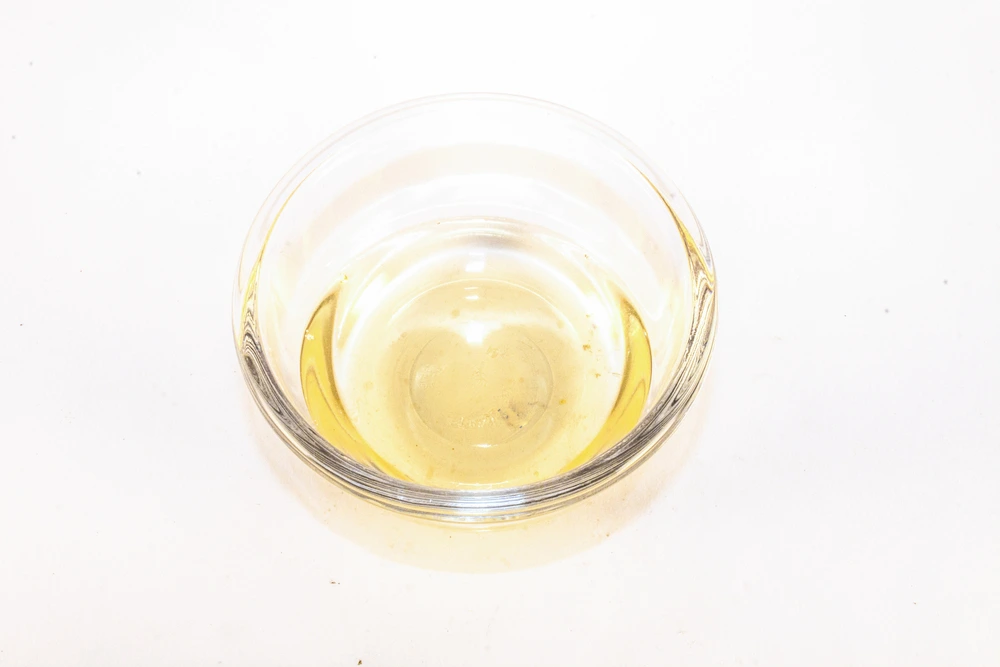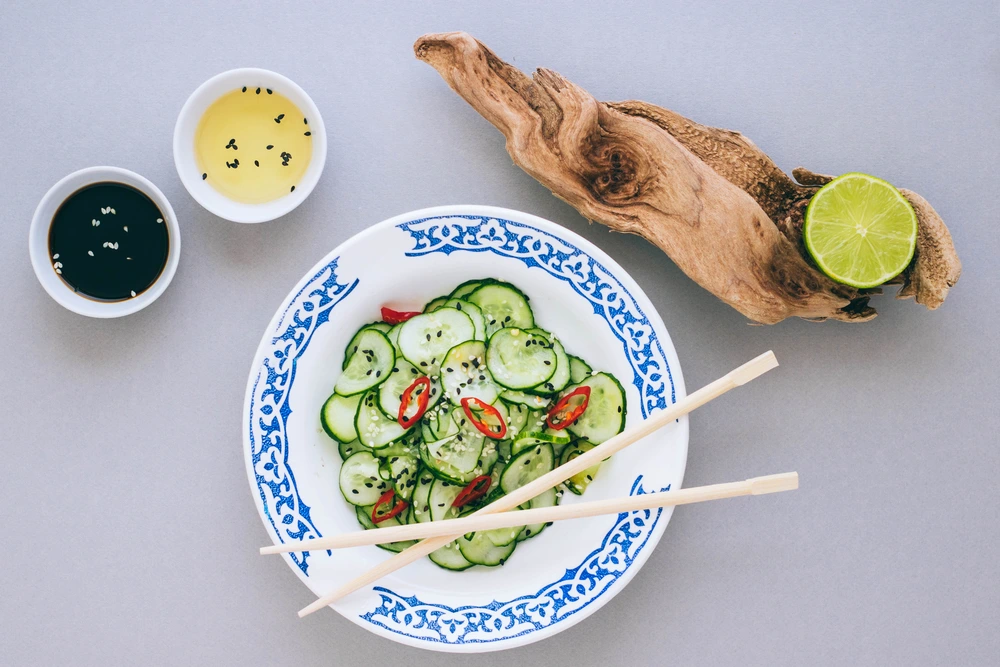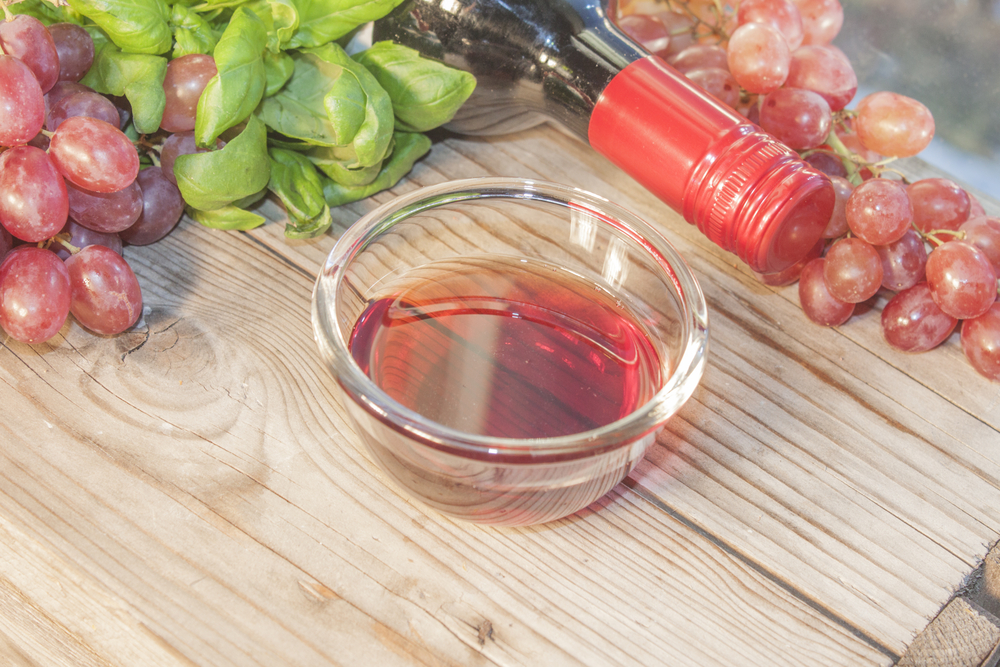Rice vinegar and rice wine vinegar are popular and well regarded ingredients in a wide range of Asian cuisine.
As it happens, rice wine is also an alcoholic drink that is as good for cooking as it is for drinking. Rice wine vinegar is a favorite ingredient in fried rice, sushi, and a number of different types of salad dressing.
Both ingredients are made from rice using the process of fermentation. Therefore the difference between them is small but significant, but the difference between the process to make one and the process to make the other are very distinct from one another.
But when people ask what is the difference between them, they tend to mean what can each be used for, and how do they each taste? I will cover all of that information here.

So, Is Rice Wine Vinegar the Same as Rice Vinegar?
In a word, “no.”
They have different uses, different flavors, and are made in slightly different ways. Both can be used for cooking, however, rice vinegar is used more or less exclusively for cooking.
Rice vinegar is used for medicinal purposes in accordance with certain forms of folk traditions, but it is generally used only as a cooking ingredient.
Rice wine vinegar is a mildly alcoholic beverage and a cooking ingredient. As far as we know, rice wine vinegar is not used in any form of folk medicine, but it may have its place as part of certain types of supplemental regimens.
The most important difference between these two rice products is that rice wine vinegar contains alcohol, and rice vinegar does not. Rice wine is also used in a number of cocktails and is the basis for a number of different mass produced alcoholic beverages.
These two are not to be confused with red wine vinegar, which has its own uses.
Rice Vinegar Definition
Rice vinegar is made through the familiar process of fermenting sugar to the point where it becomes alcohol, but of course, we’re not done yet. Once it achieves this state, it is further fermented to the point where it becomes an acid.
This is done to remove the alcohol content, (the key difference between the two) and to achieve the well known bitter and tangy flavor of vinegar.
However, at this point, it will be so potent that it will need to be cooked to reduce the level of acidity. Once the process is complete, the rice vinegar is useful for making dishes taste more sweet.
It is a popular cooking ingredient in culinary traditions hailing from Southeast Asia, Vietnam, and East Africa just to name a few of the regions where it is most popular.
Popular versions of rice wine you may have heard of are Sake or Shaoxing wine.
What makes rice vinegar what it is, is the point in the process where it’s fermented into an acid to remove the alcohol content.
Short of this, what we have is our other ingredient, Rice Wine Vinegar, described in the next section.
Rice Wine Vinegar Definition
Rice wine vinegar is made by turning the sugar in the rice into alcohol through the process of fermentation.
In so doing the entire mixture becomes less acidic, and gives it a mildly sweet flavor, and leaves the alcohol in it, making it a suitable, however mild, adult beverage.
The primary difference between this and rice vinegar is that one does not contain alcohol, and the other does.
As suggested, rice wine vinegar can be drunk on its own, or it can be used in the preparation of a wide variety of dishes.
The alcohol content varies between 18 and 25% ABV. This leaves it with an average ABV less than the average glass of beer. Sake, usually taken for a variety of beer, is actually a type of rice wine. It has its origins in Japan and has become popular all over the world.
Should one opt to cook with it, rice wine can be used in stir fry, veggie dishes, soups, and more. It is made from rice, fungi, yeast, and lactic acid.
Rice Vinegar vs Rice Wine Vinegar: What’s the Difference?
Most forms of mass produced vinegar are made from fruit, fermented to the point where it becomes alcohol, and then fermented further until it becomes vinegar.
It is a familiar truism that wine improves with age, but if left too long it turns to vinegar. In the case of vinegar production, this is not just ruined wine but is the intended product. Handy hint, even wine that has turned bad has uses.
Unlike most types of vinegar, rice vinegar is made with rice instead of fruit. Glutinous rice is used specifically since it has the right properties to help ensure the final product is as expected.
Rice vinegar has a similar flavor to apple cider vinegar with a potent flavor profile. Rice wine is mild to moderately sweet. The two rice products also have a different nutritional profile, with the higher caloric content in rice wine, as expected.
What are Suitable Alternatives for Rice Wine Vinegar?
While rice wine vinegar is not an acceptable substitute for rice vinegar or vice versa, there are a number of suitable replacements for rice wine itself.
If, for example, the recipe you’re working with calls for rice wine vinegar, you may replace it with white grape juice, gin, pale sherry, or a dry white wine. There are a number of substitute ingredients for rice wine vinegar.
If, on the other hand, the recipe calls for rice vinegar and you haven’t got any on hand, you may substitute lime or balsamic vinegar. These will give you a very close approximation of the desired flavor.
When substituting another type of alcoholic beverage for rice wine, keep in mind that the flavor of the substitute should be similar to that of rice wine, or at least offer a similar or compatible flavor.
For example, you would not want to replace rice wine with a dark beer. A light beer may work well, but a type of champagne will probably work even better.
How to Use Rice Wine Vinegar for More Flavor

Both rice wine and rice vinegar can be used to add flavor to a number of dishes.
It’s important not to use too much. If you don’t have the recipe in front of you, try to err on the side of caution, and adjust on a later attempt.
Rice wine vinegar is known to work very well with:
- Asian dressings: mix it with sesame oil ginger, or soy sauce.
- Asian sauces: add to cooked sauces for a dramatic flavor boost.
- Sushi rice: with a pinch of salt, rice wine works beautifully with sushi.
- Pickling: almost any pickled vegetable can be nicely enhanced with a splash of more of rice wine.
- Chips: salt and vinegar so well with plain potato chips.
- Marinades: rice wine is an excellent marinade and makes a wonderful chicken glaze.
- Stir-fries: rice wine makes cooking stir fry much easier, and adds a wonderful tangy flavor to a savory dish.
Handy Tips
- Rice wine vinegar is well known for its light, sweet flavor. This makes it ideal for use in seasoning vegetables and in salads.
- Rice wine vinegar is perfect as a sauce thickener, or to add to certain Asian dishes such as Pork Lo Mein or Szechwan beef.
- Make a quick and easy salad dressing in just minutes by mixing oil and rice wine. It’s an excellent and simple way to enhance a basic salad.
- Be sure to use your rice wine within six months after it is opened and keep it refrigerated when not in use.
- Rice wine vinegar is also a wonderful marinade for chicken wings, a party night favorite.
Other Types of Vinegar
Like wine, vinegar can be made from just about any fruit or vegetable that is capable of fermentation. You can even make it at home if you take the time to learn how.
- Distilled white vinegar: This is the most common type of vinegar found in stores and household kitchens. It is a bit sharp and is a common ingredient in many safe and effective home cleaning solutions.
- Champagne vinegar: With its mild flavor, this is a popular addition to a number of seafood dishes. It also makes a great salad dressing.
- Lemon or lime: Not a type of vinegar, technically, however, these are excellent substitutes for most types of vinegar, and they have pronounced health benefits.
- Seasoned rice vinegar: This type of vinegar is made by adding salt and sugar to ordinary rice vinegar. It is far sweeter than plain rice vinegar and is well suited to a number of popular dishes.
Rice Wine Vinegar: Good for Your Health?
While alcohol is not good for your health in excess, many of the compounds found in rice wine vinegar are.
The health benefits of this mild alcoholic beverage are similar to those of wine, namely, they help keep your heart healthy by helping to clear bad cholesterol from the circulatory system.
Before indulging in a specific product, check the label to see how much sugar is in it. Sugar is the number one torpedo for any decent health regimen and should be avoided or minimized as much as possible.
As always, excessive amounts of alcohol will negate the benefits of any quality wine, but one reasonably sized glass per night should be within safe limits.
In Summary
At their core, both of these rice products are similar in their basic compounds. Still, their flavors and uses are very different. It bears repeating that the most important difference between them is the alcohol found in rice wine vinegar, though their respective flavors are also quite distinct.
They absolutely cannot be used interchangeably since they have such drastically different flavors, and of course, rice wine cannot be given to anyone who cannot tolerate alcohol.
- Shrimp Cocktail (and More) Wine Pairing Guide - 09/06/2022
- What Wine Serving Sizes Look Like: Standard Size and More - 08/06/2022
- How Much Sugar is in Wine: Glass and Bottle Sugar Content - 08/06/2022






